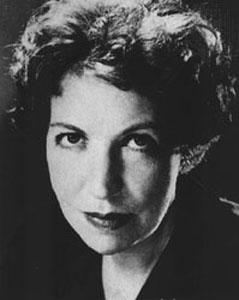A Quote by John Stuart Mill
He who knows only his own side of the case (argument) knows little of that. His reasons may be good, and no one may have been able to refute them. But if he is equally unable to refute the reasons on the opposite side, if he does not so much as know what they are, he has no ground for preferring either opinion
Related Quotes
In living literature no person is a competent judge but of works written in his own language. I have expressed my opinion concerning a number of English writers; it is very possible that I may be mistaken, that my admiration and my censure may be equally misplaced, and that my conclusions may appear impertinent and ridiculous on the other side of the Channel.
..(T)here are two opposite reasons for being a democrat. You may think all men so good that they deserve a share in the government of the commonwealth, and so wise that the commonwealth needs their advice. That is, in my opinion, the false, romantic doctrine of democracy. On the other hand, you may believe fallen men to be so wicked that not one of them can be trusted with any irresponsible power over his fellows.
I may venture to say, loosely, that in Judo there is a sort of counter for every twist, wrench, pull, push or bend. Only the Judo expert does not oppose such movements at all. No, he yields to them. But he does much more than yield to them. He aids them with a wicked sleight that causes the assailant to put out his own shoulder, to fracture his own arm, or in a desparate case, even to break his own neck or back.
[Confiscating a book and punishing its author] is a sign that one does not have a good case, or at least doesn't trust it enough to defend it with reasons and refute the objections. Some people even go so far as to consider prohibited or confiscated books to be the best ones of all, for the prohibition indicates that their authors wrote what they really thought rather than what they were supposed to think . . .
Actions are held to be good or bad, not on their own merits, but according to who does them. There is almost no kind of outrage-torture, imprisonment without trial, assassination, the bombing of civilians-which does not change its moral color when it is committed by 'our' side. The nationalist not only does not disapprove of atrocities committed by his own side, he has a remarkable capacity for not even hearing about them.
The parents have to learn that the child should not be insulted, humiliated, condemned. If you want to help him, love him more. Appreciate what is good in him rather than emphasizing what is bad. Talk about his goodness. Let the whole neighborhood know how nice and beautiful a boy he is. You may be able to shift his energy from the bad side to the good side, from the dark side to the lighted side, because you will make him aware that this is the way to get respect, this is the way to be honored. And you will prevent him from doing anything that makes him fall down in people's eyes.
The truly educated man is not a man who knows a bit of everything, not even the man who knows all the details of all subjects (if such a thing were possible): the “whole man” in fact, may have little detailed knowledge of facts and theories...but he will be truly in touch with the centre. He will not be in doubt about his basic convictions, about his view on the meaning and purpose of his life. He may not be able to explain these matters in words, but the conduct of his life will show a certain sureness of touch which stems from this inner clarity.
The man who cannot listen to an argument which opposes his views either has a weak position or is a weak defender of it. No opinion that cannot stand discussion or criticism is worth holding. And it has been wisely said that the man who knows only half of any question is worse off than the man who knows nothing of it. He is not only one-sided but his partisanship soon turns him into an intolerant and a fanatic. In general it is true that nothing which cannot stand up under discussion or criticism is worth defending.
You may fear that the Lord has passed you by, but it is not so: he who counts the stars, and calls them by their names, is in no danger of forgetting his own children. He knows your case as thoroughly as if you were the only creature he ever made, or the only saint he ever loved. Approach him and be at peace.
Man... knows only when he is satisfied and when he suffers, and only his sufferings and his satisfactions instruct him concerning himself, teach him what to seek and what to avoid. For the rest, man is a confused creature; he knows not whence he comes or whither he goes, he knows little of the world, and above all, he knows little of himself.








































